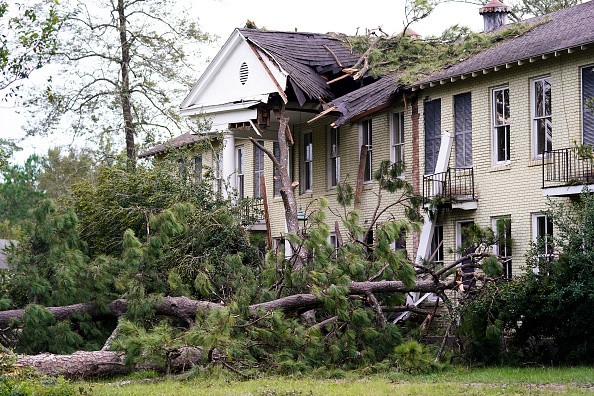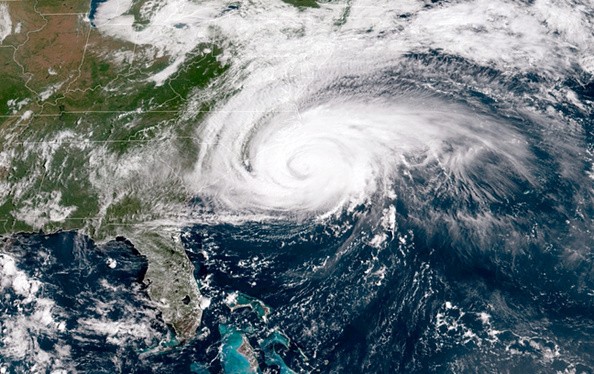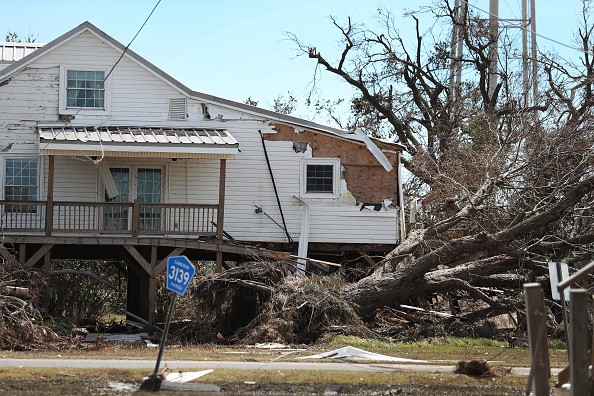A group of climate scientists from Rowan University in New Jersey set out to address that question, running over 35,000 computer simulations to analyze the evolution of storm tracks and better forecast future storm behavior. The results of the experts were particularly alarming for one particular region of the United States.

The study's chief researcher, Dr. Andra Garner, told AccuWeather that the climate models she used to assess storm behavior evolution predict that storm systems would only get more merciless in the coming decades.
"Over time, hurricanes appear to be building closer to the United States' southeast coast," she said. "This implies that those northeast communities have less time to prepare for such storms to come." "Another thing that happens is that storms move at their slowest down the US East Coast over time, which means that those towns that they hit are subjected to the storm's effects for a longer period of time."
Studying Hurricane-Related Flooding in the Future

Garner said her team has been working on a study on the future of hurricane-related flooding in New York City for years. This was before Ida, which had turned from a hurricane on the Gulf Coast to a tropical storm as it moved north, wreaking havoc on the eastern United States and New York City in August and September 2021.
The study's major findings demonstrate that future hurricanes will not be a concern just in historically vulnerable places.
The researchers modeled the future tropical situation (2080-2100) under a very high-emissions scenario using storm tracks from the pre-industrial era (850-1800) and the present era (1970-2005).
Greenhouse Gas Production
As employed in the study, the production of greenhouse gases induced by the extensive use of fossil fuels continues to bring further warming to the climate under a future high-emissions scenario.
The study's abstract states, "Tropical cyclone (TC) track characteristics in a changing environment remain unknown."
"The East Coast Should be Concerned"
Although Garner's team's primary aim was to research potential tropical impacts on New York City, the data suggested that a few other East Coast cities should also be concerned.
"As the climate warms, TCs originate closer to the United States' southeast coast, attain their slowest forward speed along the United States' Atlantic coast, and persist farther north and east in the Atlantic basin," according to the research. "The time it takes for TCs to reach places like Boston, Norfolk, and New York City is shorter, and the average duration of TC conditions at each of these sites is longer."
It may soon be necessary for residents of the Northeast to contact their Gulf Coast friends and relatives for safety advice. On the other hand, future adjustments will need more than just boarding up.
Plans for the Future

Garner believes that her results will impact how these East Coast communities plan for the future. , the present configuration may not work.
"We're living in a society that has been developed and adapted for a climate state that may no longer be the case, and we're now dealing with this rapidly changing climate," she said, adding that tropical storms like Hurricane Ida demonstrated how difficult it is to prepare for something no one has ever seen before. "I believe it's something we should be considering - how can we adapt our communities?"
As Ida cruelly demonstrated in August and September, rethinking community infrastructure is a matter of life and death.
Garner said her study's findings should send a strong message about the need of beefing up coastal infrastructure ahead of future storms to places like New York and Philadelphia, where flooded subways and buildings turned into death traps due to Ida's severe rainfall.
"We need to be thinking about it right now," she added, "and coming up with methods to make those communities more resilient." "Things like sea-level rise and storm surge, as well as modernizing our infrastructures, such as some of the difficulties we see in New York City with subways flooding and other challenges, are all things we need to be thinking about."
For more news about the environment , don't forget to follow Nature World News!
© 2025 NatureWorldNews.com All rights reserved. Do not reproduce without permission.





